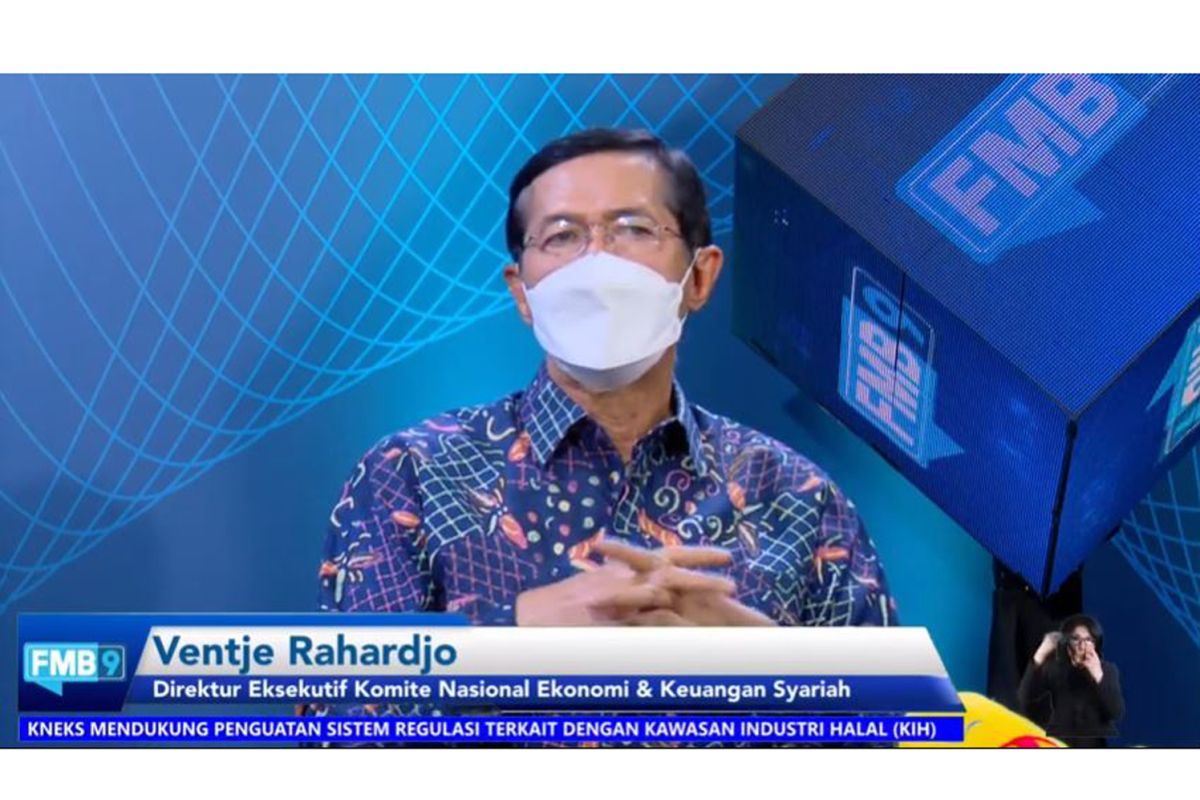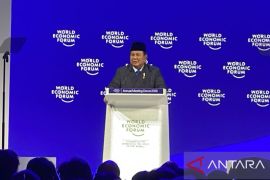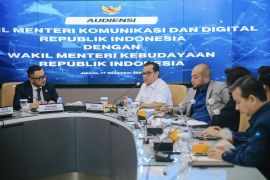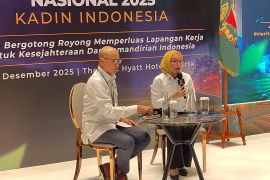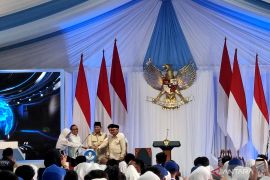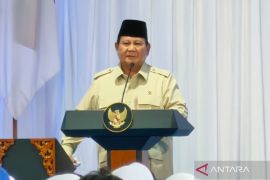"If the sharia economy is founded on the basis of a digital economy, then it will have sufficient competitiveness against a non-sharia economy. So, digitization is also important," he remarked while attending an online discussion on 'Indonesia Aims for the King of the Halal Industry' on Monday.
From a marketing perspective, various marketplace platforms have provided special sessions or places to market halal products, he pointed out.
In addition, in terms of the payment system, the digital wallet platform (e-wallet) owned by State-Owned Enterprises (SOEs) is offering sharia services, he added.
Within one year, the number of digital wallet participants has increased to 2.5 million people, Rahardjo said.
This figure indicates that digitalization has become a necessity in society and it is predicted to continue to grow along with the development of lifestyles and the strengthening of Islamic banks in Indonesia, he added.
"We have also seen the government install what is called QRIS (Quick Response Indonesia Standard). Hopefully, it will be available in the vicinity of the Grand Mosque or the Prophet's Mosque, so that Indonesians can shop through these sharia services, using QRIS Indonesia," he said.
Strengthening the digital economy is one of the main strategies contained in the 2019-2024 Indonesian Sharia Economic Masterplan, Rahardjo noted.
The other three strategies are strengthening the halal value chain, strengthening Islamic finance, and strengthening micro, small, and medium enterprises (MSMEs), he said.
He reminded all parties to encourage infrastructure strengthening, for example, by building human resources (HR), for sharia economic development. KNEKS has also held discussions on the subject with academics from sharia study programs at various universities in Indonesia.
Rahardjo emphasized that the economic potential of halal products has increased significantly in the world, but Indonesia is still struggling as a consumer.
While the compound annual growth rate (CAGR) of projects in the halal industry will increase to 6.2 percent by 2024, as a country with the largest Muslim population in the world, Indonesia is considered not to have optimized the potential and opportunities of the sharia economy, he pointed out.
Therefore, the government is pushing the realization of sharia economic development further in Indonesia by establishing the National Committee for Islamic Economy and Finance (KNEKS) in 2020, he added.
Related news: VP calls for innovation, research on sharia economy at varsities
Related news: Indonesia's halal value chain continues to grow: VP
Related news: Pesantren, sharia economy can potentially boost national economy
Translator: Rizka K, Azis Kurmala
Editor: Sri Haryati
Copyright © ANTARA 2021
